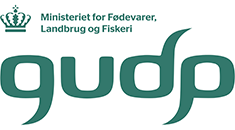Mushroom fermentation of side streams form the food industry
Today, large amounts of waste streams are produced in Denmark during the production of beer and sugar. The purpose of MycoProtein is to convert these industrial plant waste streams into fungal mycelium (Oyster Mushroom, Pleourotus Ostreatus).
Existing protein alternatives are most often based on grains and beans produced in intensive agriculture and imported from other parts of the world. We will develop a product that can be produced locally in Denmark in fermentation tanks with local waste streams.
The growth of fungal mycelium will take place in a liquid medium where both the fungal mycelium and the remaining substrate will be harvested, collected and dried. The nutritional quality of the harvested mushroom protein product will be significantly larger than the starting material, as the protein quality is similar to meat. Mushrooms also have a high level of umami, which is an important flavor component in meat and which is very low in many plant protein ingredients such as soy and pea protein. Compared with the production of meat from cattle, the water consumption of the fungal product will be approx. 99% less, CO2 emissions at least 30 times less and land consumption is reduced almost 99%, as a consequence of reduced meat intake as well as utilization of sidestreams.
The purpose of MycoProtein is to convert industrial plant waste streams from beer and sugar production into fungal mycelium (Oyster Mushroom, Pleourotus Ostreatus). The fungal product will subsequently be included as protein ingredient / component in foods. Here it will contribute significantly to reduce resource consumption, increase the quality of plant-based meat substitute and could help replace meat production and thus lower greenhouse gases.
Funded by:

Project period: July 1st 2020 - June 30th 2023
Researchers
| Name | Title | Phone | |
|---|---|---|---|
| Associate professor | +45 35 33 34 83 | ||
| Marcel Joehnke | Assistent professor | +45 35 33 25 79 |


